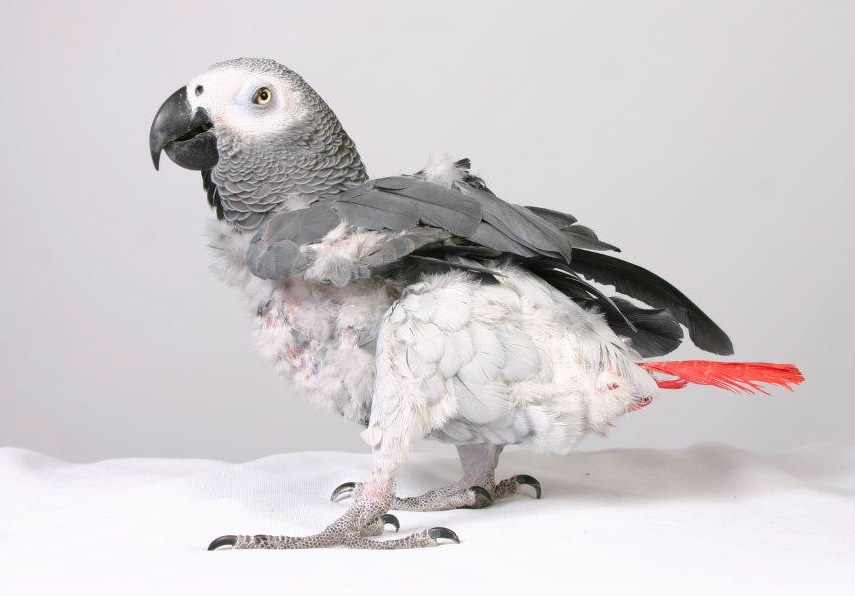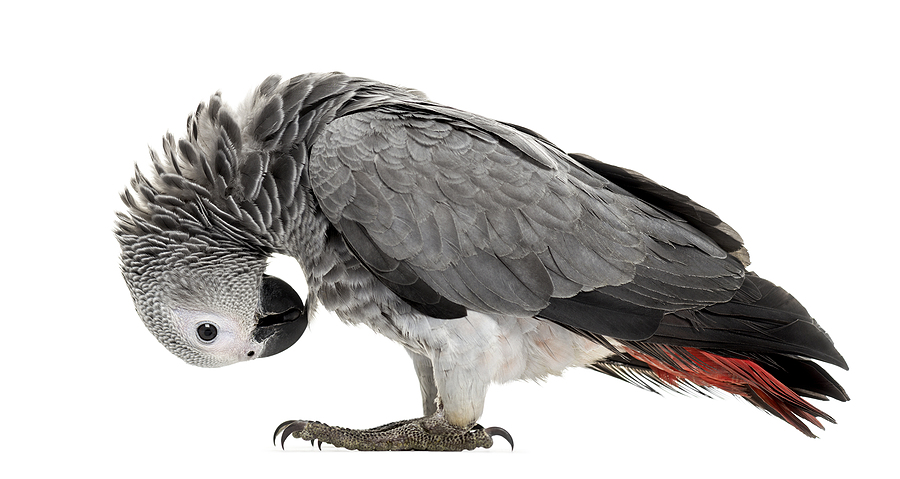
FEATHER PLUCKING IN AFRICAN GREY PARROTS
Before we go into the details on how you can stop your African grey parrot from feather plucking, lets first start by knowing what feather plucking is all about.
- Feather Plucking;
Feather plucking or picking is one of the most common and aching problems seen in pet birds that can be solved with the right information and procedures. Feather plucking leads to an aesthetic defect in birds and makes it difficult for the bird to keep itself warm and sometimes leads to serious infections and complications. Feather picking occurs when the African grey parrot develops the habit of destroying its feathers to a more severe point were the bird damages the skin.
Feather picking usually moves from feather-destructive behavior (where the bird may just chew on its feathers) to a more dangerous form where the bird damages its skin. Sometimes a bird will also damage the feathers and/or skin of its companion. Feather damage/plucking can occur anywhere the bird’s beak can reach, but most commonly affects the breast and neck.
Why Birds Feather Pick?
Birds can pick their feathers for a variety of reasons, but these all fall into two basic categories: which is medical and behavioral. The Medical causes of feather-picking can be related to the skin and feathers, or as a result of stress from other illness. The medical causes of feather picking include poor eating habits, exposure to toxins, infection (which may cause bacterial, viral, or fungal in origin), parasites, or other diseases. Your avian veterinarian will want to perform a full physical examination and/or run laboratory tests to rule out medical causes of feather-picking. If a medical cause of feather-picking cannot be identified, the feather-picking is likely occurring due to behavioral reasons.
Tips on how to solve feather picking
- Enough Sleep
It is advisable that birds are allowed 10-12 hours of good sleep each night. Covering the cage at night may not provide optimal rest, so a separate dark room may be required for the bird to obtain good rest. Birds prefer a constant sleep schedule, so timers may help ensure your bird is getting optimum sleep at the same time every night.
- Quality Food
Good food/diet is one of the most important factors of bird husbandry, stress from bad eating habits can be a cause of feather-picking. There are a variety of nutritionally complete pelleted diets available; contact your veterinarian to determine which one is most suitable one for your bird. The pelleted diets should be supplemented with a variety of fresh vegetables, whole grains and fruits. The seed diets are high in fat and do not provide adequate nutrition. The seeds and nuts should be used as treats and for training purposes. Your veterinarian can discuss different methods to wean your bird off of an all-seed diet and onto a pelleted diet.
- Keep your Grey parrot clean
The majority of African grey parrots are native to tropical rain forests where rain showers are a daily occurrence. To Mist your bird with a spray bottle is an easy way to bathe your bird. The shower perches are also available, to take a clean bath with your bird can be a fun bonding activity. It is advisable to avoid shampoos or soaps when bathing your bird, as they can be harmful. It is also important never to shower an ill bird, as they are less able to control their body temperature and may become too cold.
- Relief Stress
Always try to relied stress by identify things in your bird’s environment that may be causing your bird stress. Did the behavior start with a particular change in the household, such as new household member/pet, new diet, or different handling? Make sure your bird is getting enough attention during the day. Avoiding stressors can make a big difference in the anxiety level of your bird.

